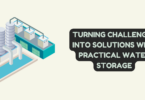
What is test proctoring?
Test proctoring refers to the process of supervising an exam or test to ensure that it is conducted in a fair and secure manner. This type of control is important to prevent fraud. In addition, it helps to ensure equal opportunities for all students, regardless of where they are.
This article provides an overview of the different types of test proctoring, their benefits and limitations, and some best practices for conducting test proctoring.
What Is Involved in Test Proctoring
The purpose of test proctoring is to ensure that the test taker follows the rules and guidelines set forth by the test giver. This helps create a fair and standardized testing environment for all test takers.
Tests that typically require proctoring include standardized tests such as the SAT, GRE, and LSAT, certification exams such as those for medical professionals or cosmetologists, and distance learning exams for online courses.
The responsibility of proctoring typically falls on the organization or institution administering the test. This may be a school, testing center, or professional organization. The proctor may be an employee of the administering organization or an outside vendor hired specifically for this task.
Who are the Test Proctors
Ensuring a secure and unbiased testing environment is of utmost importance, and the test proctor plays a crucial role in making this possible. The test proctor’s responsibilities extend beyond simply supervising students during exams. They must also ensure that exam materials are correctly distributed and collected while monitoring compliance with the rules of conduct. Any suspicious activity must be promptly reported to the exam coordinator.
The qualifications for test proctors may differ depending on the job requirements. However, a high school diploma or its equivalent, along with a clean background check, is generally required. Some institutions may require additional training or certification in test proctoring. To be an effective test proctor, good communication skills, organizational abilities, and the ability to stay composed under pressure are crucial.
The Benefits of Test Proctoring
Test proctoring can provide many benefits to students, educators, and institutions. Here are some of the most notable benefits:
- Ensures academic integrity. Test proctoring can prevent cheating or other forms of academic dishonesty during exams, ensuring that the grades students receive accurately reflect their knowledge and abilities.
- Provides a level playing field. Test proctoring can help ensure that all students have equal access to the exam and its requirements, regardless of individual circumstances or testing accommodations.
- Offers flexibility. Test proctoring can be done in-person or online, allowing institutions to offer exams at different times or locations to meet the needs of remote or non-traditional students.
- Supports student success. Test proctors can provide a calming presence that can help ease test anxiety, which can lead to better performance and higher grades.
- Protects institutional reputation. Test proctoring can help prevent academic scandals or other negative events that could damage the reputation of an institution.
Overall, test proctoring can help ensure that exams are conducted fairly and that students receive the grades they deserve based on their knowledge and abilities.
Tools and Technologies Used in Test Proctoring
Exam software programs are designed to facilitate the administration of exams and tests in a secure and controlled environment. Popular online proctoring software is ProctorEdu.
This tool can detect cheating attempts, verify student identity, and prevent unauthorized access to exam materials.
Video chat tools are used to facilitate live communication between the proctor and the student during the exam. These tools allow proctors to see and hear the student in real-time and help ensure that the student is adhering to the exam rules and regulations. Some popular video chat tools include Zoom, Microsoft Teams, and Google Meet.
Concerns and Criticisms of Test Proctoring
Assisting in academic testing during the pandemic has brought about a surge in the utilization of test proctoring services. These services necessitate students to allow monitoring of their computers and/or webcams throughout the entire exam period. However, this raises concerns about the security of the recorded data and who has access to it. There is also the possibility of the proctors misinterpreting private information in the background like open tabs or documents as cheating. Besides, some students may find the constant monitoring uncomfortable.
Furthermore, the cost of test proctoring is not affordable for all students, more so for smaller educational institutions with limited financial resources. Consequently, this can lead to economic barriers for students, making it difficult for some to afford the additional fees.
Notably, test proctoring may not be accessible to students with disabilities who require additional accommodations during exams. Also, students residing in areas with poor internet connectivity or without access to a personal computer or webcam may miss out on remote proctoring services.
The Future of Test Proctoring
With the increasing use of technology, many test proctoring services are adopting digital solutions for monitoring and preventing cheating. Advancements in artificial intelligence (AI) and machine learning have made it possible to detect warning signs of cheating during online exams.
While technology can enhance the effectiveness of test proctoring, there are also concerns regarding privacy and fairness. It is important for test proctoring services to address these concerns and develop solutions that protect the rights of students while maintaining academic integrity.
To enhance the effectiveness of test proctoring, providers are exploring new methods such as multi-factor authentication, secure browser environments, and artificial intelligence-powered analysis of student behavior during exams. These methods can help to prevent cheating and ensure fair exams.
Conclusion
Maintaining both the academic integrity and ethical treatment of students is crucial. While proctoring is sometimes essential, it should not cause unnecessary stress, anxiety, or mistrust among students. It’s important for educational institutions to find alternative forms of assessment in order to minimize the need for proctoring or mitigate any negative impacts it may have on the student experience.





